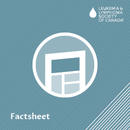What is myeloma?
Myeloma is a cancer of the plasma cells. It happens most often in adults over the age of 50. Plasma cells are found in the bone marrow and produce antibodies (immunoglobulins) that protect you against disease. Myeloma is when the bone marrow has a type of immunoglobulin that reproduces uncontrollably. Myeloma cells can disrupt normal blood production and the functioning of the immune system, damage the kidneys, and form into masses.
In Canada, there was an estimated 3,400 new cases of myeloma in 2020.
You are not alone.
Know that the blood cancer community is here to support you every step of the way.
What happens next?
Talking to family and friends
Telling your children
Speaking with your employer
Preparing for appointments
Understanding lab results
Asking for a second opinion
Coping with fear, anxiety and stress
Taking care of your body
Managing fatigue and cognitive challenges
Understanding insurance and organizing finances
Resources on myeloma
Chemotherapy
An overview of what chemotherapy is, how it works, how it is given, side effects, and questions to ask your healthcare team.
Myeloma
Myeloma, which is a cancer of the plasma cells, is the second most common form of blood cancer in Canada. It most often appears in men, those over the age of 60, and more often in people of African ancestry
Blood and Marrow Stem Cell Transplant
Get an overview of what your blood and bone marrow do; understand the different types of stem cell transplants; learn who is eligible for a stem cell transplant; find out how to prepare for a stem cell transplant; learn about recovery.
Understanding clinical trials
Get an overview of clinical trials, understand them, how they are planned, evaluate benefits and risks of participating, address concerns and what to ask.
Watch & Wait (active surveillance)
Learn about the watch and wait approach, understand the benefits and find out what it means for you.
Types of blood cancer treatments
You or your loved one has been diagnosed with a type of blood cancer. Cancer treatment can be complex, with different types of treatment options available for some blood cancers. What are they and how do they work? This fact sheet will help you Learn about the different treatment options available, Understand each type of treatment and how it can help, Prepa…
Shared Decision Making: Discussion tool for people with a blood cancer
You or your loved one has been diagnosed with a type of blood cancer. You will be making important decisions with your healthcare team.
Managing Myeloma: Diagnosis, treatments, side effects, etc. / 2023 Myeloma Week
In this webcast, Dr. Anthony Reiman, medical oncologist at Saint John Regional Hospital, will provide an overview on the latest information on the diagnosis, treatments and side effects of myeloma and answer your questions about myeloma.
Myeloma Research – What's new? / 2023 Myeloma Week
In this webcast, Dr. Donna Reece, hematologist at Princess Margaret Cancer Centre/University of Toronto, talk about the current and new treatments for myeloma. She is also sharing what is being done to help improve the quality of life myeloma patients.
Why the type of myeloma matters
There are many types of myeloma. Doctors divide myeloma into groups that describe how fast or slowly the disease is progressing. The treatment for myeloma varies according to the type You may find that learning about your diagnosis once you know the type of myeloma involved will help you better understand the disease and its treatment.
Subtypes
Doctors classify myeloma into subtypes by using various tests. The subtype plays a large part in deciding the type of treatment.













